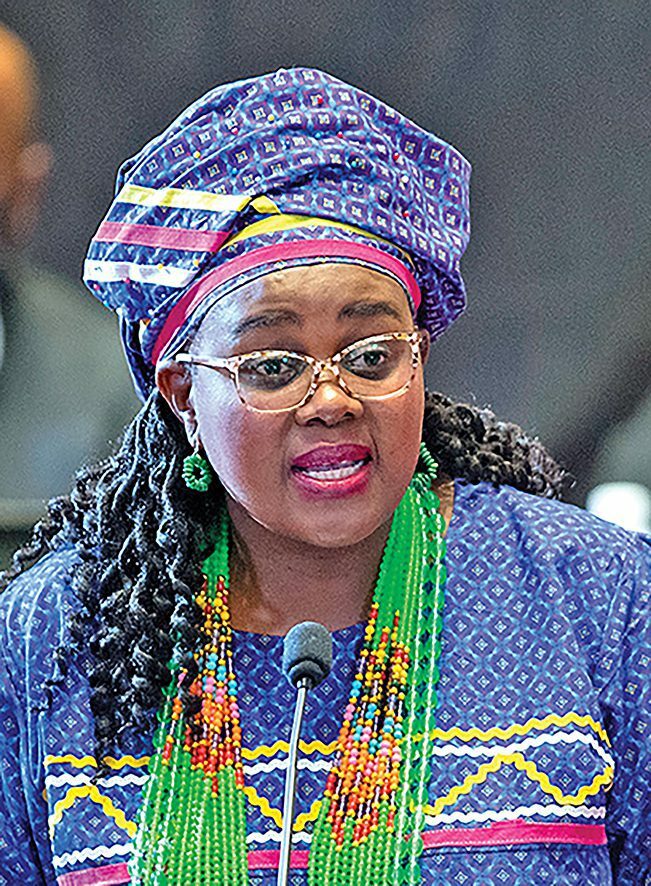Earlier this week four young children, all under 10 years, were killed in a horrific shack fire that also claimed the life of a 31-year-old adult in Katlehong township in Ekurhuleni.
While authorities were still investigating the cause of the fire, preliminary reports suggest that the shack fire was caused by a candle. The fire quickly spread, destroying the three-room shack as neighbours watched helplessly as their desperate efforts to stop the fire were all in vain.
The tragic and deadly fire could have erupted in Zandspruit, north-west of Johannesburg, or Setjwetla in Alexandra, or in Khayelitsha outside Cape Town or any other informal settlements where millions are forced to live without adequate service and proper houses.
The outbreaks of shack fires in informal settlements are common occurrences, especially during winter months when shack dwellers try to keep warm by creating fires in their shacks. The lack of electricity supply also forces shack dwellers to opt for candles to provide light in the shacks. Sometimes, these candles fall and spark fires that cause untold destruction in the informal settlement. These tragic developments are often accompanied by the loss of lives.
Having spent years living in an informal settlement, I have a full appreciation of the tough conditions that shack dwellers face daily. When it rains, it also rains in the shack. When it is cold, it is also cold in the shack. When it is hot, the heat in the zinc-shack in unbearable. A fire that breaks in one shark often does not only consume that individual shack, but it rapidly spreads and affects other shacks in the area. Often people lose everything in such fires. Sadly, others die in the fire, as was the case with the four little children and an adult in Katlehong.
The problems of shortage of houses, shortage of urban land for human settlement and rapidly rising urbanisation, which forces people to live in informal settlements and slums, do not only affect our country. They are global problems. In our country, what exacerbates the problem is the apartheid spatial development of our cities, which configured our urban settlement to accommodate the minority and exclude the majority.
According to the Global Action Plan (GAP), an UN-Habitat initiative, in 2007, the world population arrived at a critical milestone in that for the first time in history, more people were living in urban areas than in rural areas. Rapid urbanisation in many countries with fragmented and weak institutional frameworks to tackle multiple, complex, and interrelated urban challenges has led to currently about 1.6 billion people, or over 20% of the global population, living in inadequate, crowded, and unsafe housing and being severely affected by multiple shocks and risks.
In 2020, about one in four urban dwellers worldwide lived in slums or informal settlements, marked by the most severe deprivations. This translates to more than 1 billion people, 85% of whom live in three regions. These regions are Sub-Saharan Africa, where 50.2% of the urban population, which accounts for 230 million people, live in slums; Central and Southern Asia, where 48,2% of the urban population, or 359 million people, live in slums; and the Eastern and Southern Asia, where 21,7% of the urban population, or 306 million people, live in slums.
UN-Habitat (2020) and World Bank (2018) put the following countries among the top countries with highest percentage of the urban population living in slums varying from above 90 % to above 60 %: Afghanistan, Angola, Benin, Central African Republic, Chad, Democratic Republic of Congo, Ethiopia, Guinea-Bissau, Liberia, Madagascar, Mauritania, Mozambique, Sao Tome and Principe, Somalia, South Sudan and Sudan.
The GAP report further states that the urban poor living in slums are heterogeneous groups with different levels of vulnerability based on gender, age, ethnicity, race, household structure, migration status and other intersectional factors.
The most marginalised populations are migrants, refugees, women, the elderly, and others who live in overcrowded and risk-prone informal settlements. Children living in slums and informal settlements (estimated to be approximately 350 million to 500 million) are arguably one of the most vulnerable groups globally, given the inadequacy of their standard of living, the multidimensional poverty they experience, and their dependency on others and their environment to meet their basic needs and survive.
As the Department of Human Settlements in South Africa, our goal is to end homelessness and eradicate slums throughout the country. However, we are also alive to the reality that this is a long-term goal. In the short term, in line with the UN-Habitat initiative, we are part of the global campaign to transform slums and improve them to provide better living conditions for the people.
As part of that global initiative, South Africa was part of the UN-Habitat conference held in Nairobi, Kenya, last week. In that conference, our delegation was pleased to witness that the issues of adequate and affordable housing, urban climate action, urban crises recovery, localisation of the SDGs, finance, and prosperity were top on the agenda of the assembly.
It became clear during the engagements through bilateral meetings, side events, and other relevant meetings, that member states have common challenges and that calls for the government to implement policies and directives that seek to address housing, poverty, and unemployment. As we expected, the assembly applied its collective wisdom to the said challenges of the modern world and came up with key decisions and concrete actions to address these issues.
We remain resolute in our commitment to improve the lives of our people by providing decent housing for all.
- Kubayi is the Minister of Human Settlement
Follow @SundayWorldZA on Twitter and @sundayworldza on Instagram, or like our Facebook Page, Sunday World, by clicking here for the latest breaking news in South Africa. To Subscribe to Sunday World, click here.



